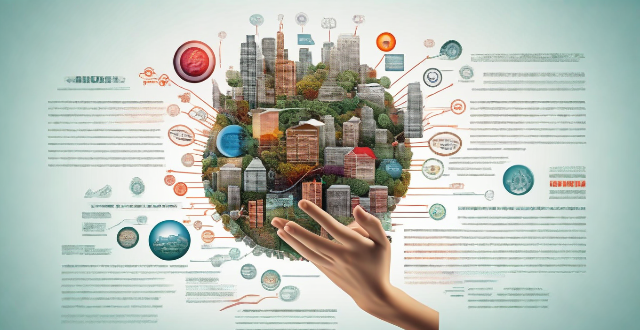Resource-efficient utilization is key to sustainable development, conserving resources, reducing waste, and promoting economic growth. It helps mitigate environmental impact, provides economic benefits, and enhances social well-being. As we face global challenges like climate change and resource scarcity, adopting resource-efficient practices is crucial for a sustainable future.

Resource-Efficient Utilization and Sustainable Development
Introduction
Resource-efficient utilization is a fundamental aspect of sustainable development. It involves the optimal use of resources to minimize waste and maximize productivity, thereby reducing environmental impact and promoting economic growth. This article will discuss how resource-efficient utilization contributes to sustainable development.
Key Points
1. Reduction of Resource Depletion
- Conservation of Natural Resources: By using resources efficiently, we can reduce the rate at which they are depleted, ensuring their availability for future generations.
- Increased Lifespan of Resources: Efficient utilization extends the lifespan of resources, delaying the need for new extraction and reducing the overall environmental footprint.
2. Mitigation of Environmental Impact
- Reduced Waste Generation: Efficient use of resources leads to less waste being produced, reducing pollution and conserving landfill space.
- Lower Emissions: When resources are used efficiently, there is often a reduction in energy consumption, resulting in lower greenhouse gas emissions and improved air quality.
3. Economic Benefits
- Cost Savings: Efficient resource utilization can lead to significant cost savings by reducing the need for raw materials and energy.
- Job Creation: The transition towards resource efficiency often creates new job opportunities in industries such as renewable energy, recycling, and waste management.
4. Social Well-being
- Improved Quality of Life: Efficient resource utilization can lead to cleaner environments, healthier communities, and better living standards.
- Equitable Resource Access: By using resources more efficiently, we can ensure that essential resources are distributed more equitably among different populations.
Conclusion
Resource-efficient utilization plays a crucial role in achieving sustainable development by conserving natural resources, mitigating environmental impact, providing economic benefits, and enhancing social well-being. As we continue to face global challenges such as climate change and resource scarcity, it is imperative that we adopt resource-efficient practices to create a more sustainable future for all.